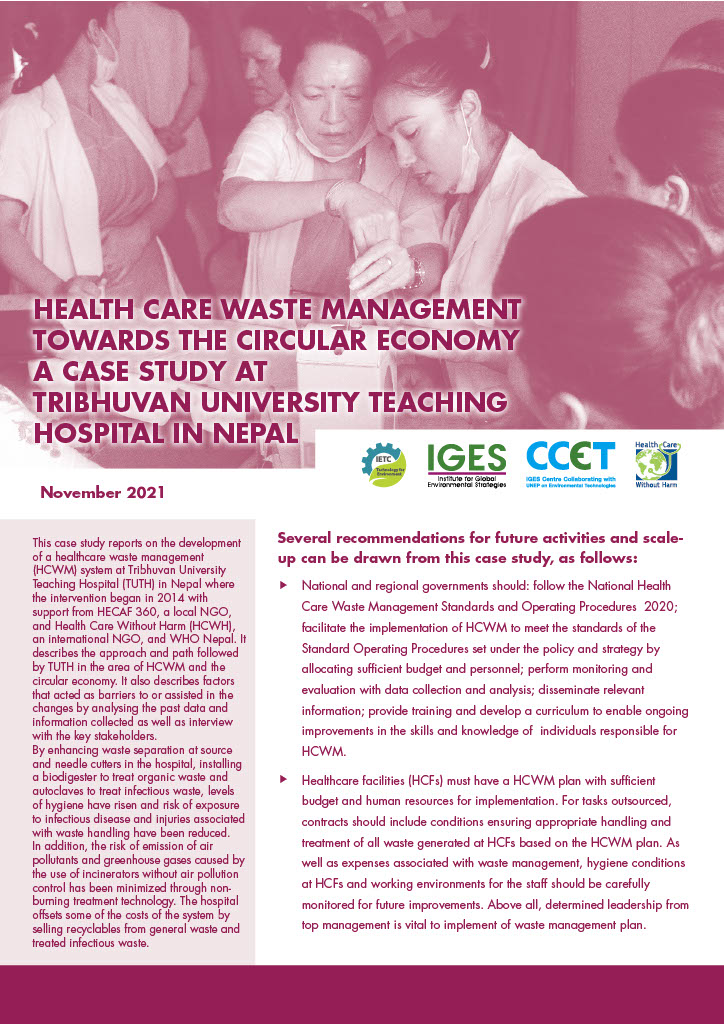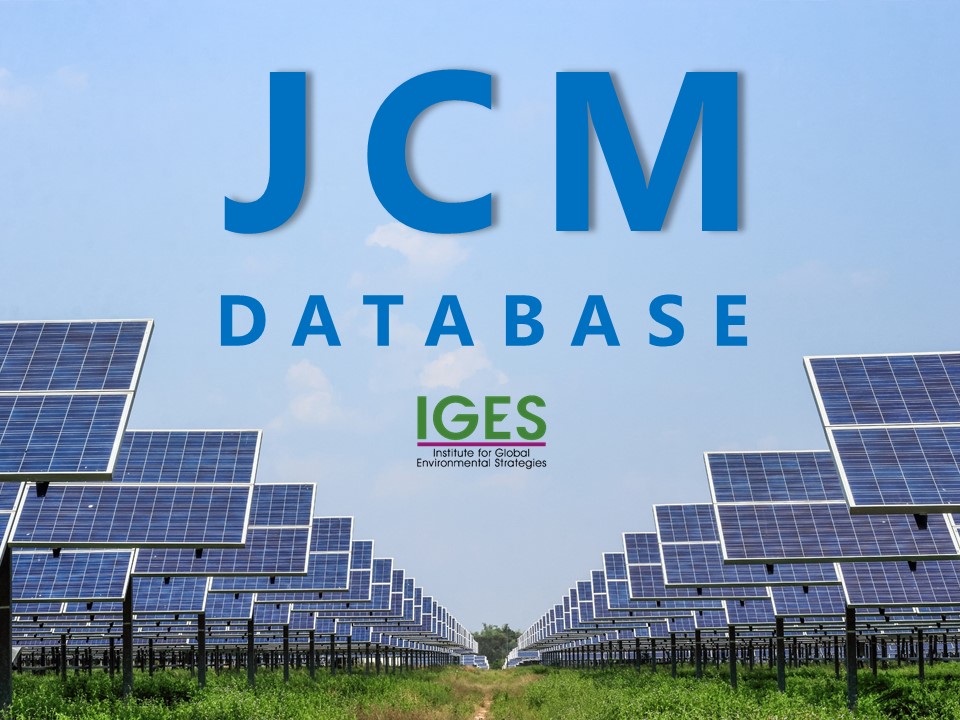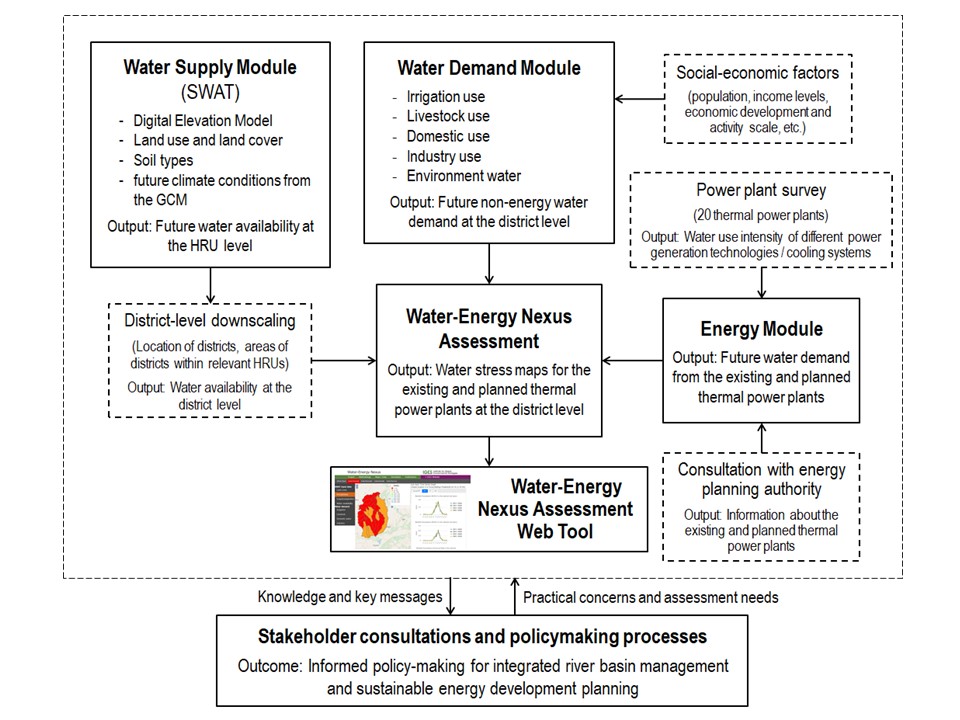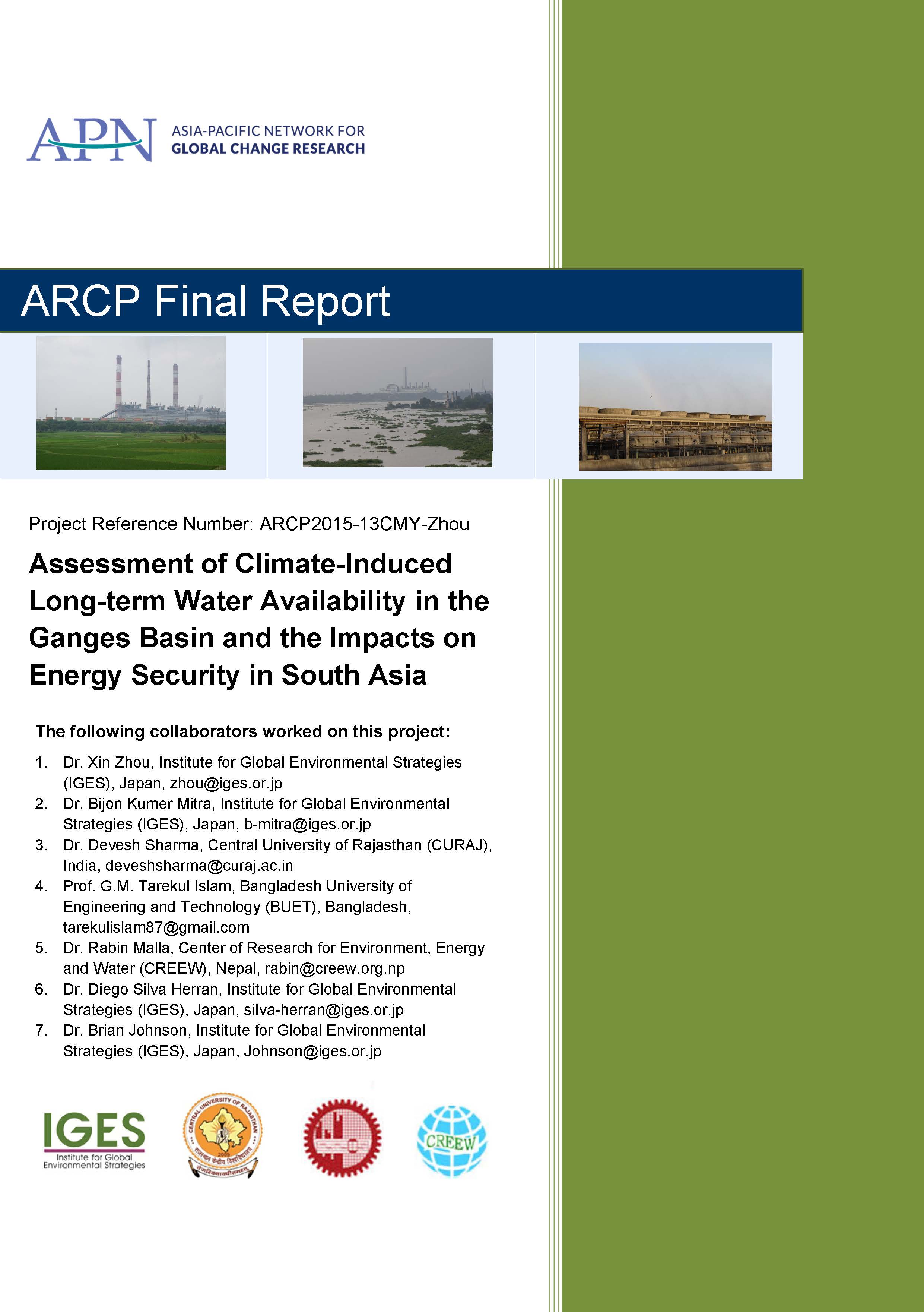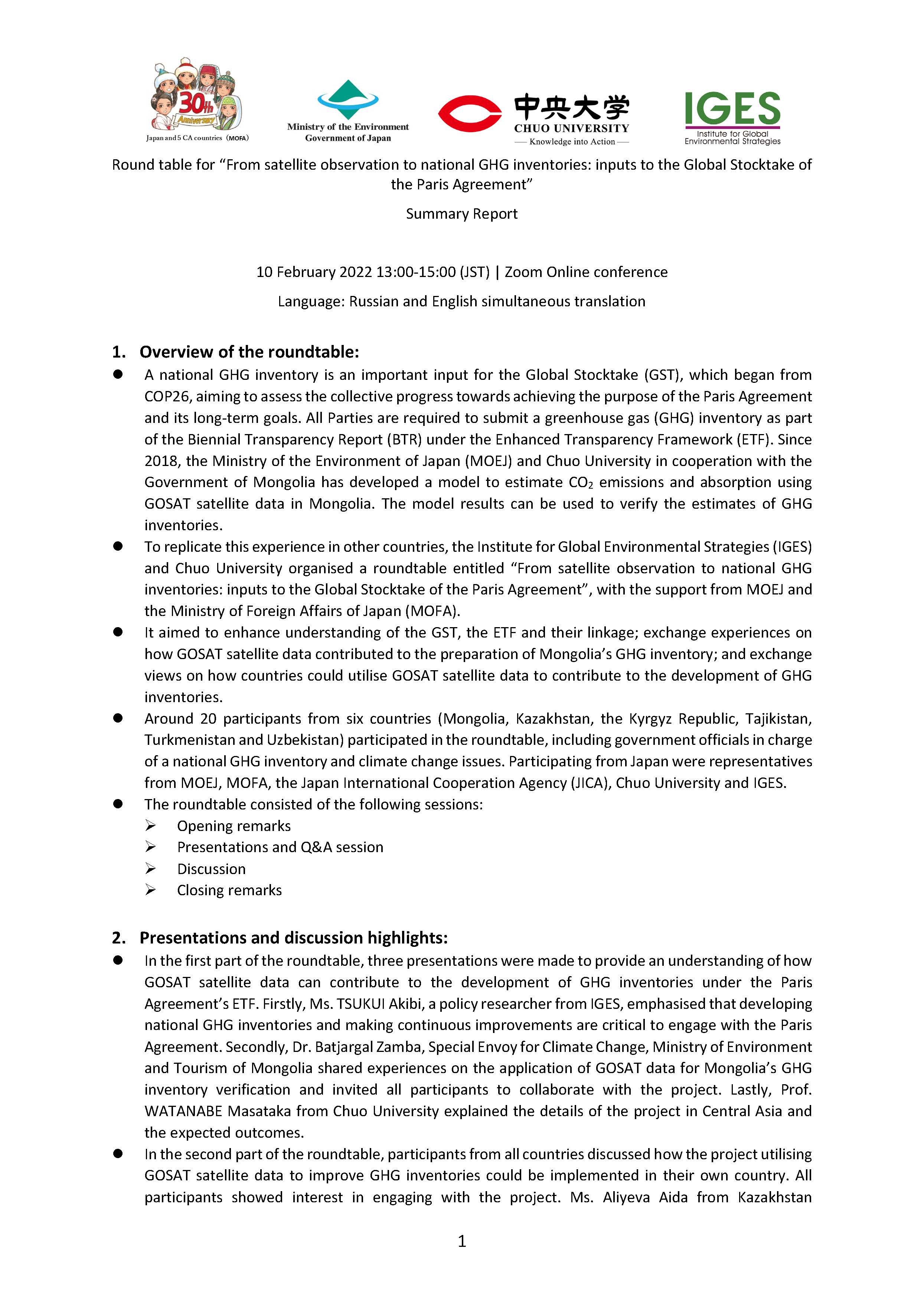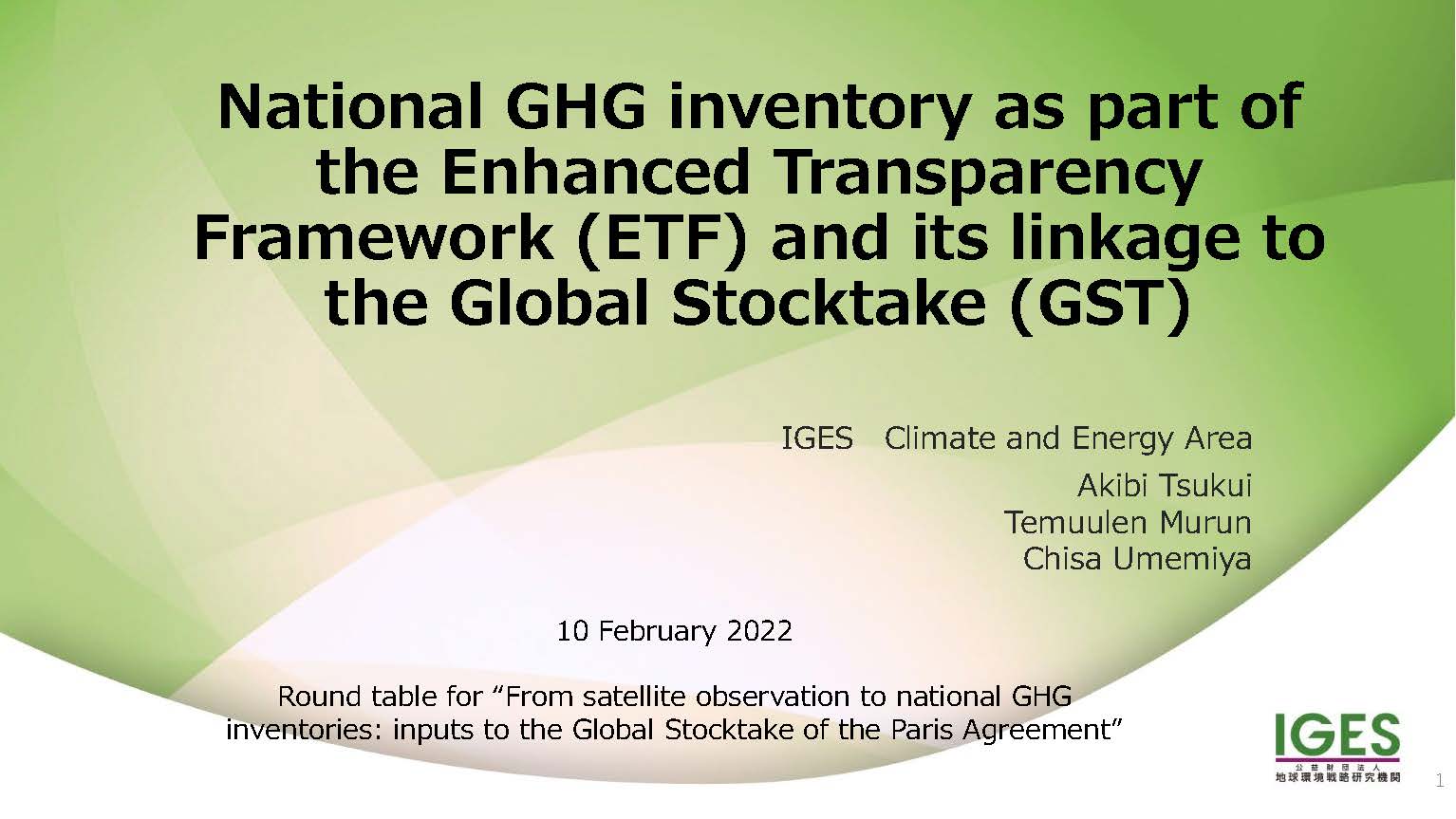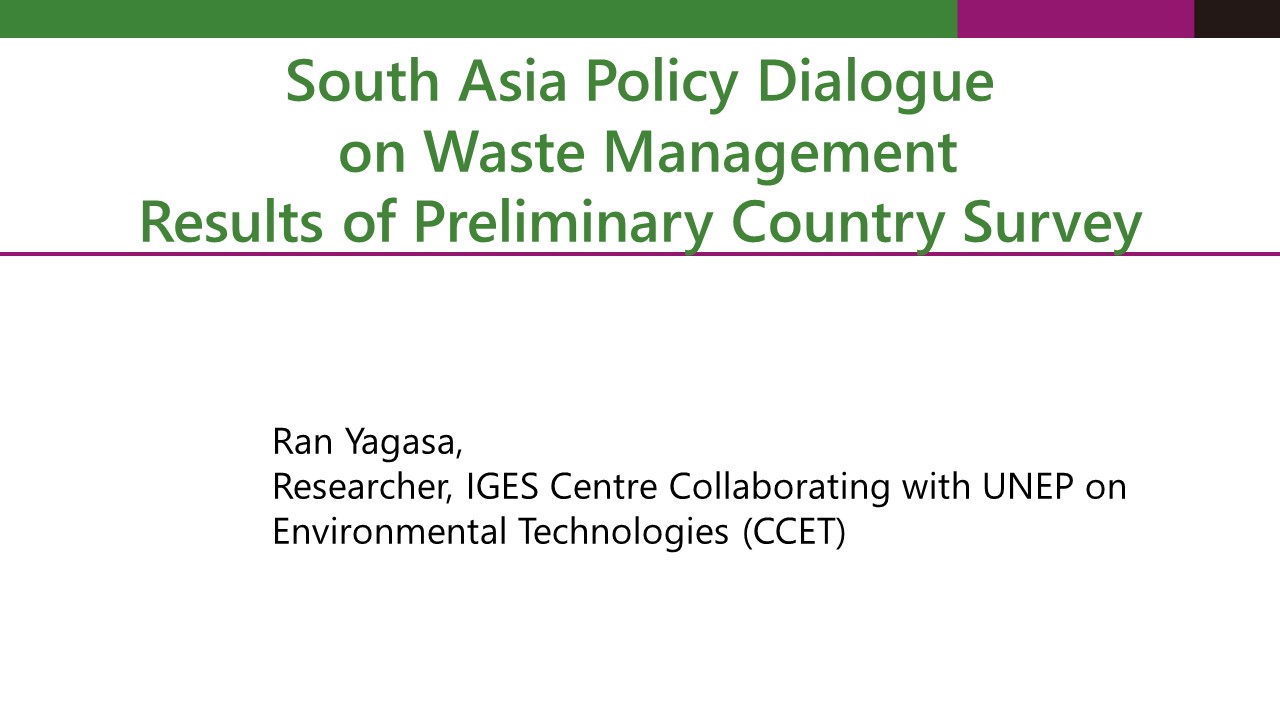This case study reports on the development of a healthcare waste management (HCWM) system at Tribhuvan University Teaching Hospital (TUTH) in Nepal where the intervention began in 2014 with support from HECAF 360 , a local NGO, and Health Care Without Harm (HCWH), an international NGO, and WHO Nepal. It describes the approach and path followed by...
- Clear all
- Topic: (-) Climate Change
- Region/Country: (-) Nepal
- Region/Country: (-) Polynesia
- Region/Country: (-) Turkmenistan
- Region/Country: (-) Uzbekistan
Results 1 - 10 of 13 (Sorted by date)
In APN Science Bulletin
CONSERVATION, RESTORATION AND management of forest resources are critical for addressing climate change. Nationally Determined Contributions (NDCs) are a vehicle for targeted climate actions, including those related to forest management, by countries towards contributing global efforts agreed under the Paris Agreement. Operationalizing climate...
IGES Joint Crediting Mechanism (JCM) Database provides detailed information on the JCM methodologies, projects, and JCM feasibility studies to be utilized for research and development of JCM project. The JCM is being implemented under bilateral cooperation between Japan and 29 partner countries: Mongolia, Bangladesh, Ethiopia, Kenya, Maldives, Viet...
Keywords:
In APN Science Bulletin
The Ganges basin provides essential water for drinking, irrigation, industrial use and power generation. Global climate change will affect the water availability in the basin and inevitably intensify the competition for water among major users, particularly from thermal power generation. Knowledge on the spatial distribution of water supply-demand...
The Ganges basin provides essential water for drinking, irrigation, industrial use and cooling of power generation facilities. Changes in the water availability induced by global climate change will impact on economic development as well as human life in this basin and beyond. Water competition among major consumers will become fiercer in the...
An inductive approach for the evidence of climate change adaptation and disaster risk reduction synergies of interventions: Challenges and opportunities
Here are some takeaway messages from our work on climate change adaptation (CCA) and disaster risk reduction (DRR) synergies of interventions. 1. There is an overwhelming agreement on and evidence for CCA and DRR synergies of DRR and CCA interventions respectively. CCA synergies were high when skill development and livelihood development activities...
The Sustainable Cities Database is a new information resource to help sustainable development actors identify potential partner cities for low-carbon technology transfer projects. Spatial and Demographic Indicators: Spatial and demographic characteristics are described using a range of indicators, including population size and density, natural...
Round table for “From satellite observation to national GHG inventories: inputs to the Global Stocktake of the Paris Agreement”
A national GHG inventory is an important input for the Global Stocktake (GST), which began from COP26, aiming to assess the collective progress towards achieving the purpose of the Paris Agreement and its long-term goals. All Parties are required to submit a greenhouse gas (GHG) inventory as part of the Biennial Transparency Report (BTR) under the...
Round table for “From satellite observation to national GHG inventories: inputs to the Global Stocktake of the Paris Agreement”
This was presented at a roundtable entitled “From satellite observation to national GHG inventories: inputs to the Global Stocktake of the Paris Agreement” on February 2022. A national GHG inventory is an essential input for the Global Stocktake (GST), which began from COP26, aiming to assess the collective progress towards achieving the purpose of...
First Sub-Regional workshop on Preparation of status Report and Sub-regional Roadmap for Implementing the Global Waste Management Goals toward Addressing SDGs in South Asia
Home to roughly 1.8 billion people, South Asia generates approximately 334 million tonnes of waste per year of which 174 million tonnes (57%) is organic in content. In addition to the increase in municipal solid waste, managing complex and emerging waste streams, including e-waste, food waste, construction and demolition waste, disaster waste...

